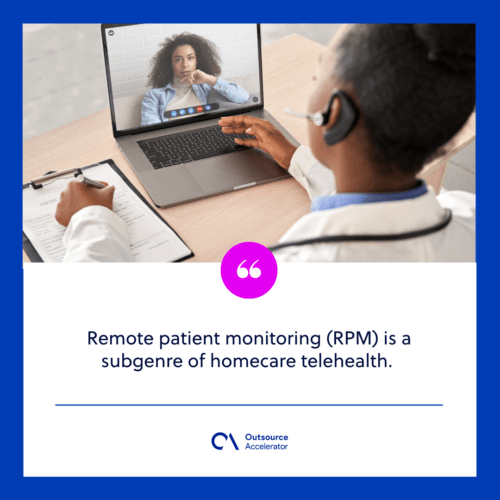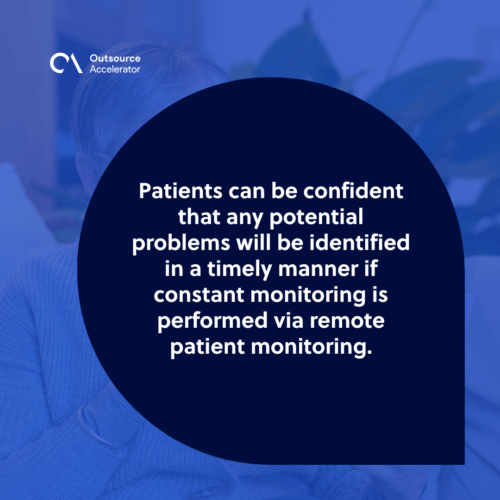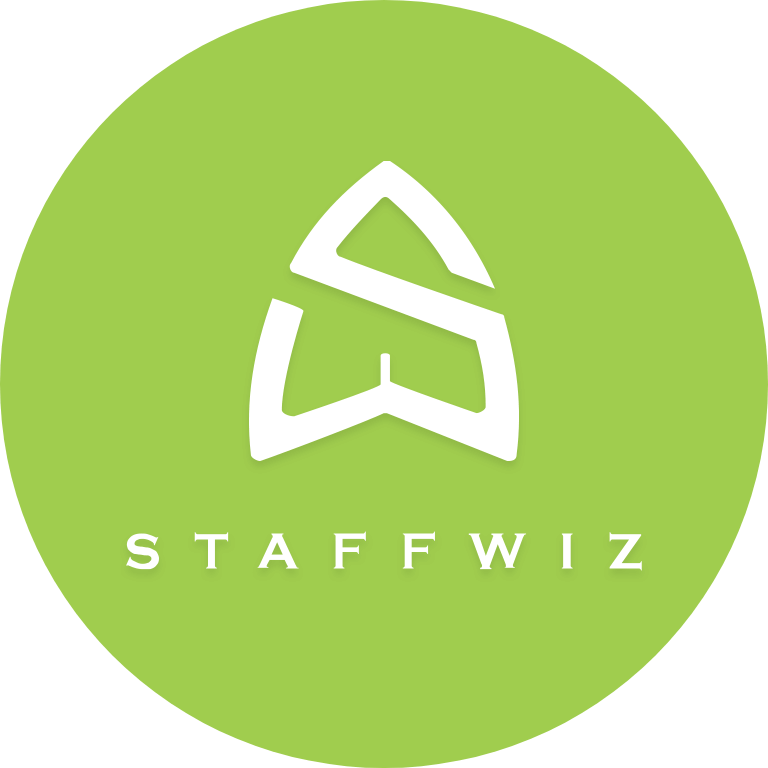A comprehensive introduction to remote patient monitoring

Looking back to 2020, the COVID-19 pandemic restrained healthcare systems worldwide. Hospitals had to drastically restrict in-person contacts by canceling elective surgeries and delaying routine patient appointments to keep the virus from spreading.
Since telehealth allows remote monitoring of patients, it has made life simpler for both healthcare practitioners and patients as they learn to manage chronic disorders remotely.
This ability to monitor some elements of a patient’s health from the comfort of home has grown in popularity as a telehealth option since then.
What is remote patient monitoring (RPM)?
Remote patient monitoring (RPM) is a subgenre of homecare telehealth. This telehealth function is utilized by remote patient monitoring representatives using mobile medical equipment and technology.
Many offshoring firms like Staffwiz today help healthcare providers to have remote patient monitoring specialists. Efficient remote monitoring assistants collect and transmit patient-generated health data (PGHD) to healthcare providers.

RPM representatives commonly capture physiological data, such as:
- Vital signs
- Weight
- Blood pressure
- Heart rate
These patient data are gathered and transferred to a physician’s office via a telehealth computer system or software program that can be placed on a computer, smartphone, or tablet.
Remote patient monitoring methodologies differ based on the equipment or condition being monitored.
Most RPM applications often give users (patients and healthcare providers) an interface through which they may track or analyze data and get treatment suggestions. A patient visit may be required when a healthcare practitioner has reviewed the data or discovers an issue.
Since many services are customizable nowadays, Staffwiz offers a customized solution to meet each client’s needs.
RPM’s latest statistics and prediction
Here are some of the latest statistics and predictions associated with remote patient monitoring:
- Since RPM is gaining popularity, Insider Intelligence estimates that by 2025, 70.6 million patients, or 26.2% of the population, will use remote patient monitoring tools.
- A report by Grand View Research forecasts that the global market size for remote patient monitoring will grow at a compound annual growth rate (CAGR) of 18.5%.
- Fortune Business Insights projects that the global market for remote patient monitoring devices will increase at a CAGR of 18.9% between 2021 and 2028.
With all of these predictions, no wonder healthcare providers are increasingly turning to remote patient monitoring.
This will undoubtedly enhance the healthcare industry’s ROI and reduce costly expenditures associated with monitoring patient data onsite.
Significant benefits of remote patient monitoring
Staffwiz believes that the “work from home” paradigm has proven very successful for businesses looking to cut costs and increase efficiency.
Similarly, since remote monitoring of patients can improve the standard of care, it’s not surprising that many practitioners are adopting this model.
Let’s look at some of the benefits of remote patient monitoring:
Increased patient engagement
Remote patient monitoring representatives provide patients daily information and feedback about their conditions. They are also able to educate patients about their concerns and offer support.
As noted earlier, remote patient monitoring tools provide patients with an interface to monitor their health records. These RPM tools are key in managing and keeping track of their current medical situations.
Therefore, healthcare provider and patient relationships are strengthened and improved by exchanging health data.
Improved quality care
Since patient data and consultations can now be accessed remotely, hospital resources can be used more for emergencies and severe cases.
Adequate access to healthcare
Healthcare professionals can treat more patients onsite since remote patient monitoring allow patients to perform fundamental health screenings independently using the latest RPM tools.
Better patient assurance and outcomes
Patients can be confident that any potential problems will be identified in a timely manner if constant monitoring is performed via remote patient monitoring.

Hire a remote patient monitoring representative from Staffwiz
Through remote patient monitoring, healthcare providers can now help more patients, improve patient results, lower care costs, and find new ways to make money.
Having the right tools and following the latest trends is not enough, especially if you don’t have a reliable support team. You need an efficient outsourcing provider to enhance your remote patient monitoring process.
Surprisingly, Staffwiz has a big part to play in telehealth care. They can help you recruit the best remote patient monitoring representative for your healthcare business.
All you need to do is to book a call with Staffwiz today!







 Independent
Independent




